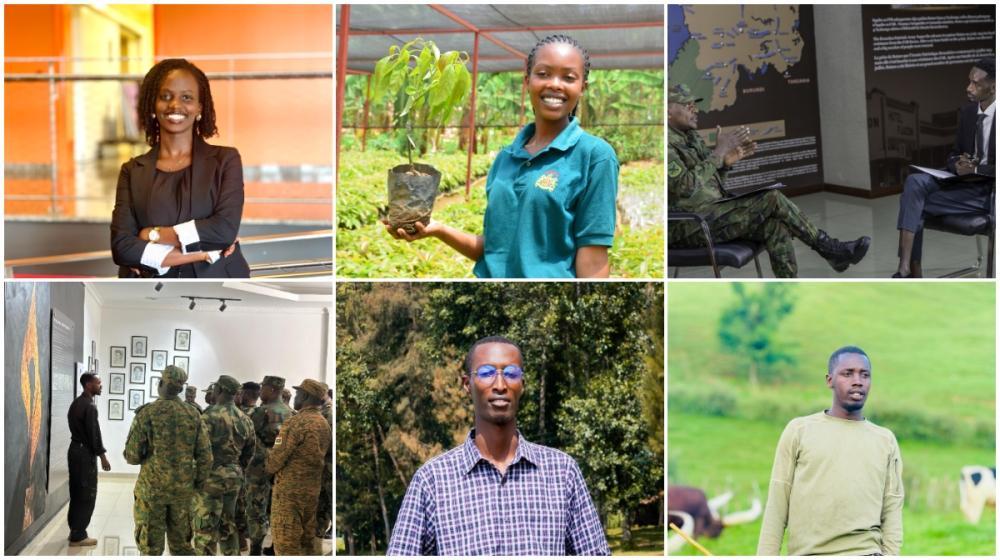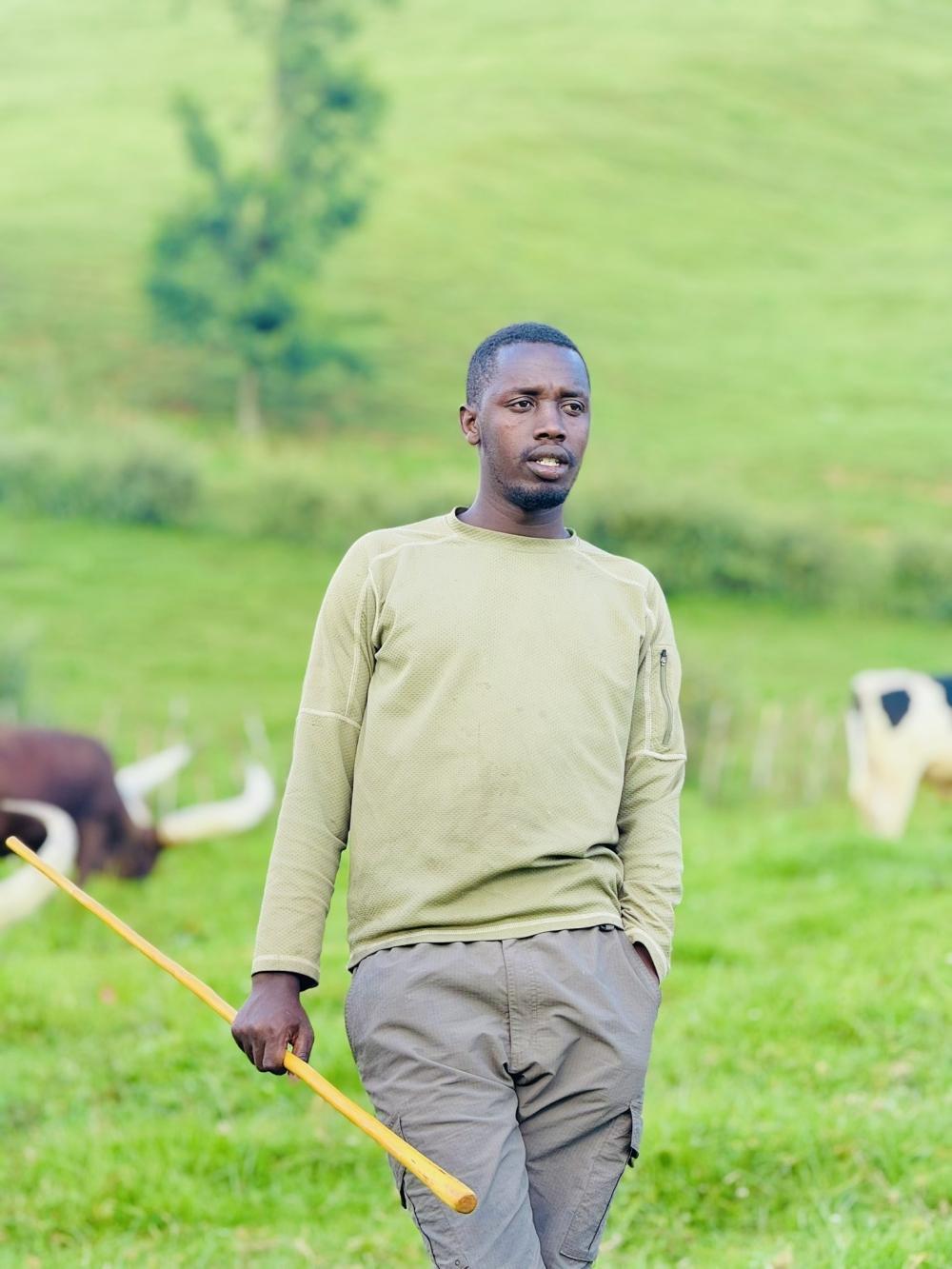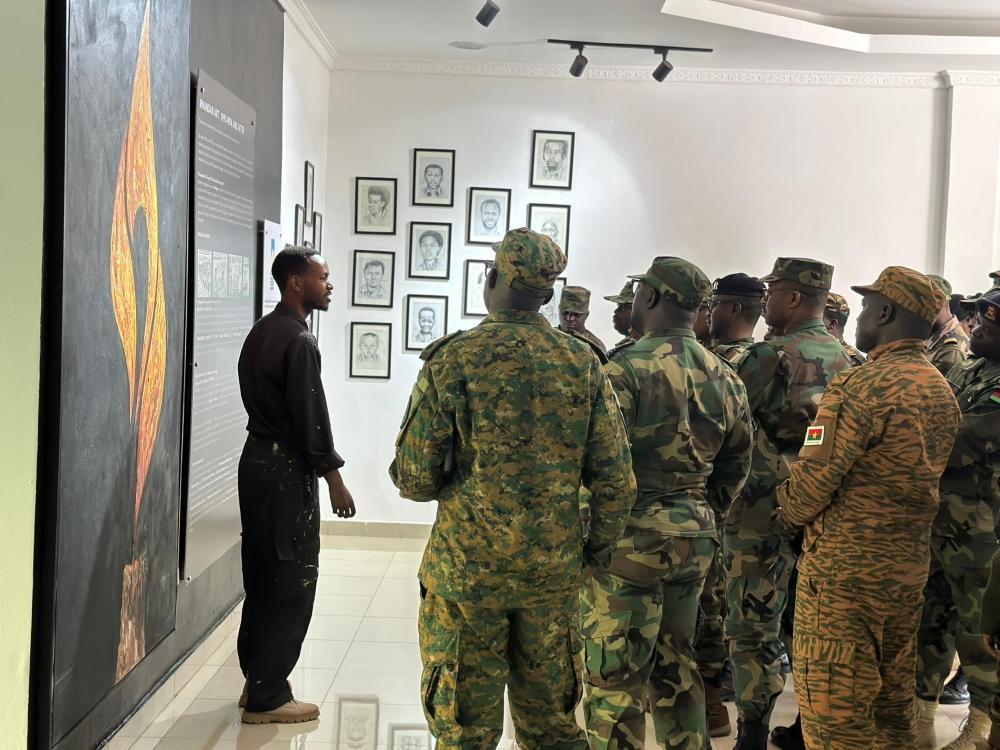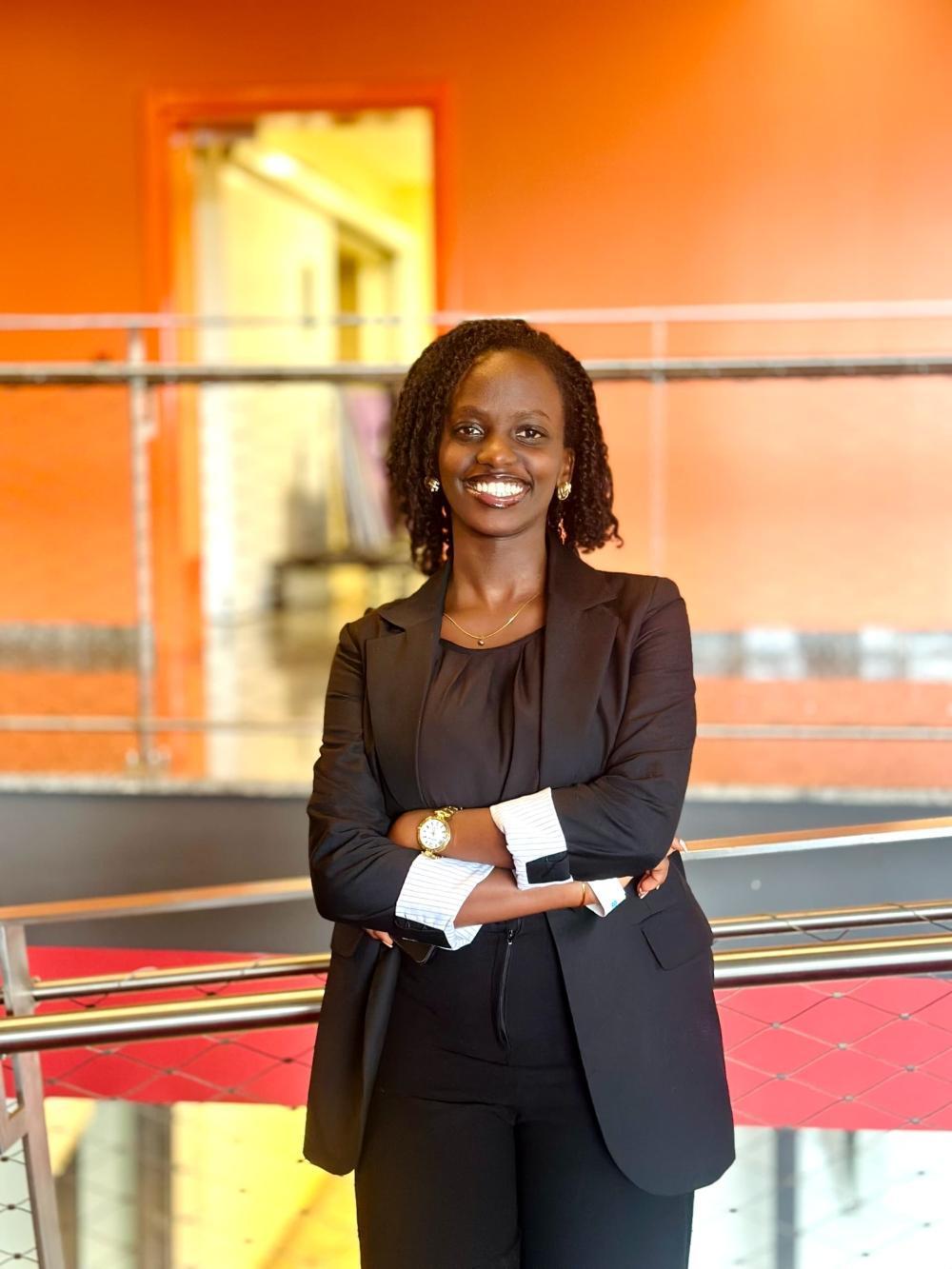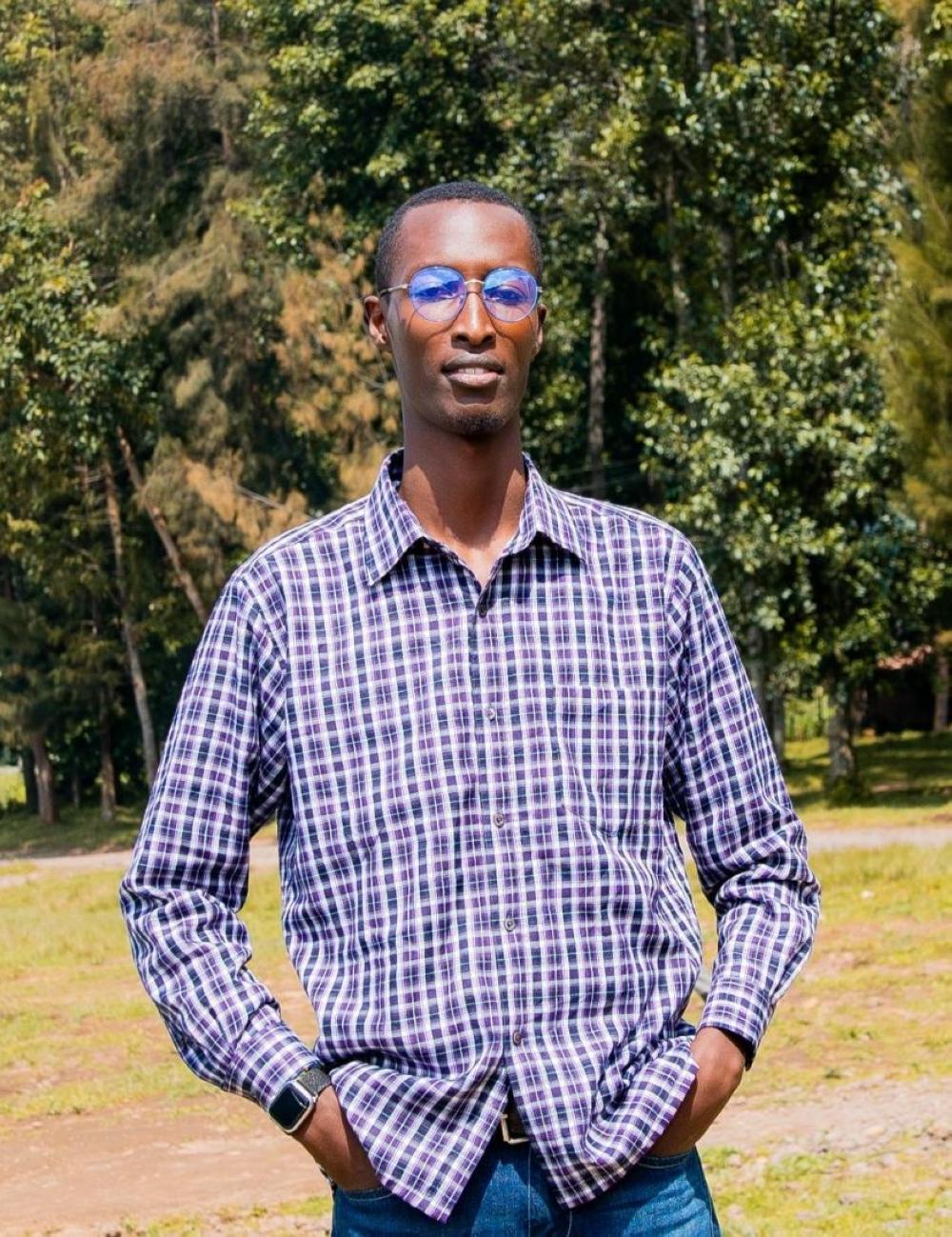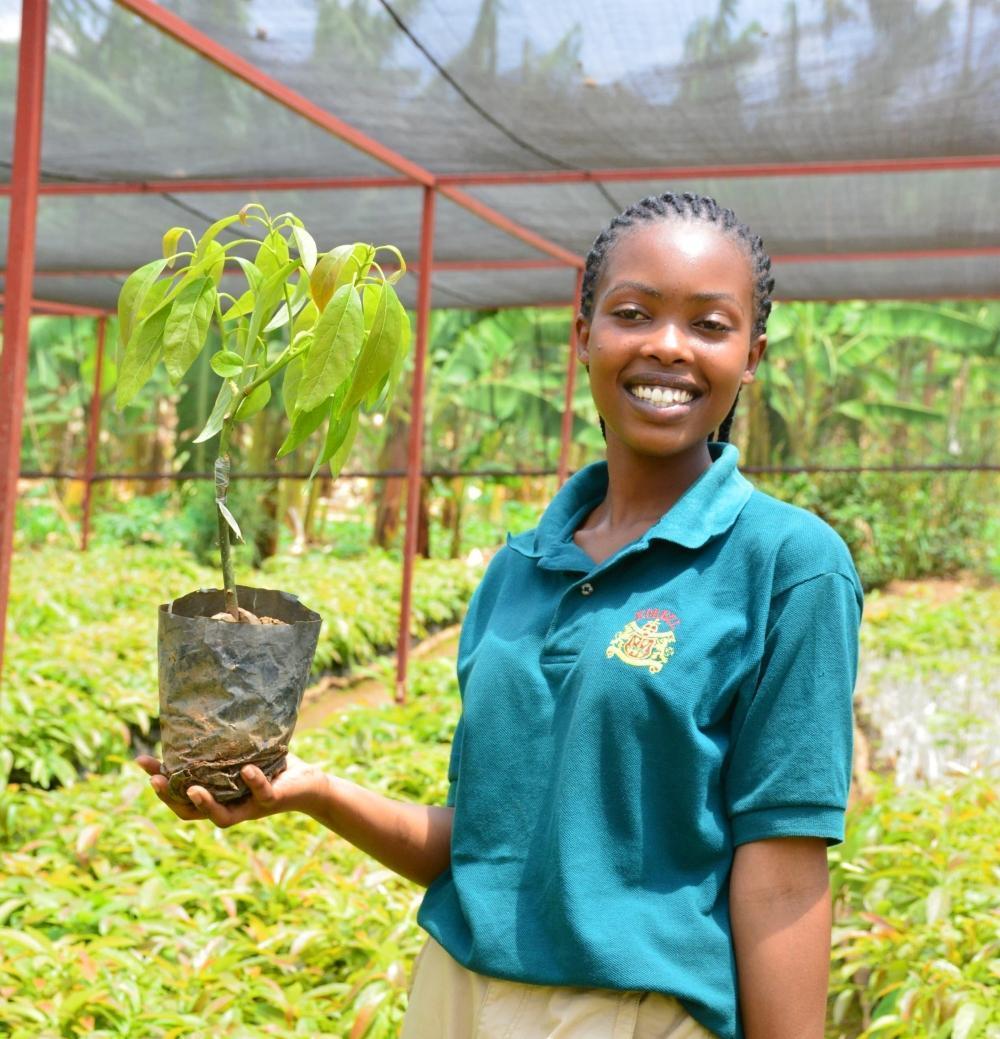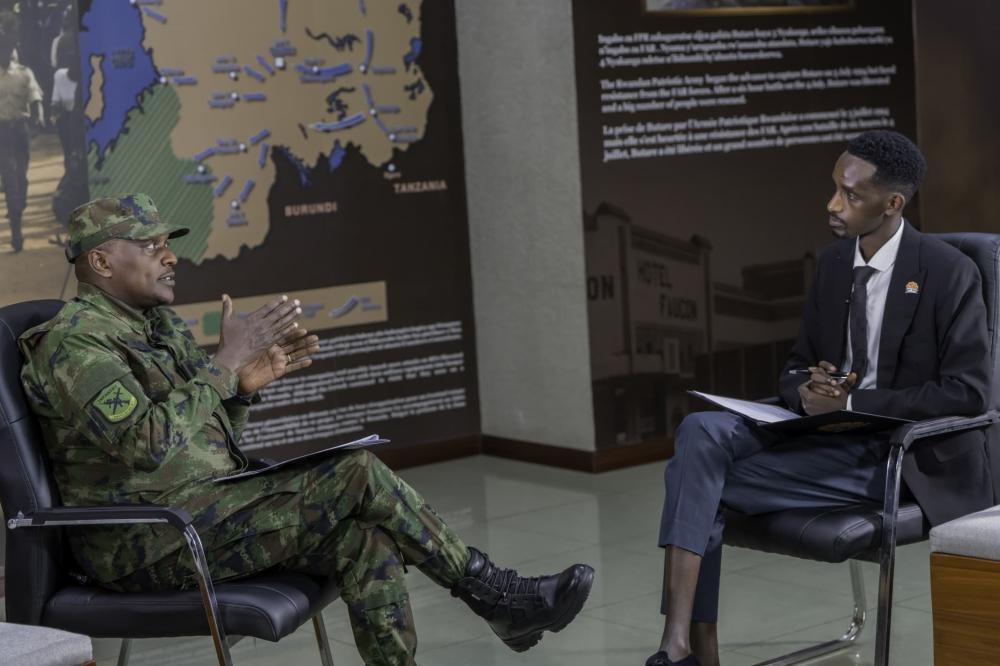Africa-Press – Rwanda. For Rwanda’s post-genocide generation, Liberation Day is not only a historical milestone but a reminder of the values that shape their identity and purpose today.
Young Rwandans from across the country say the legacy of the liberation struggle continues to inspire their resilience, ambition, and commitment to national progress. Rather than seeing liberation as distant history, they see it as a living inheritance — one that drives their contributions to a peaceful and transformed Rwanda.
Alexis Ngabo Keregeya, 29, founder of Ibere rya Bigogwe, a tourism company based in Musanze District, believes the liberation struggle taught his generation the value of vision, resilience, and focus.
Karegeya.
“There is so much to learn from the liberation struggle. I embrace the value of being determined, visionary, and focused,” he said.
“I plan for my company with goals and timelines, and I stay committed regardless of [any challenging] circumstances around me.”
He draws parallels between his entrepreneurial journey and the spirit of the Rwandan Patriotic Army (RPA), whose members launched the liberation struggle with limited resources but boundless determination.
‘They used every minute wisely to save lives’
“Despite their disadvantage, in arms and numbers, compared to the regime they were fighting, they were resolute in their mission to stop the Genocide against the Tutsi, liberate the country, and rebuild our motherland,” he said.
“They used every minute wisely to save lives. That inspires me daily. At least for us, we now live in peace, have basic resources, and enjoy a governance system that actively supports youth, empowering me to stay consistent and focused.”
For Ngabo, liberation is no longer just about securing territorial freedom, it is about freeing oneself from poverty, toxic mindsets, and destructive habits that hinder personal and collective progress.
‘I encourage young people to give their heart, knowledge, and energy to Rwanda’
King Ngabo, 29, the Founder and Artistic Director of Museum Ingabo, a Kigali-based initiative preserving culture, art, and community, echoes this with a sense of gratitude and duty.
King Ngabo.
“If the country had not been liberated, maybe I would be living somewhere as a refugee without rights, without a national ID or passport,” he said.
“When you truly understand our history, you do not just celebrate it. You extract lessons from it.”
Ngabo believes the patience and perseverance involved in the creative process mirror the struggle of liberation itself.
“As artists, our work does not always make sense to people when it is still in progress. For example, if I say I am working on a project involving 30 drums to represent Rwanda’s historical journey, people would think I am crazy, until they see the result. It requires resilience and courage.”
He urges peers to give their best to the country in whatever field they are in.
“I do not judge anyone. But I encourage young people to give their heart, knowledge, and energy to Rwanda. Be excellent in whatever you do. That is how you grow personally and contribute to national development. For me, liberation means giving back fully.”
‘The highest form of love’
Winny Baho Ntaganira, a social commentator known for her patriotic voice on X, says patriotism is the most profound lesson inherited from the liberation struggle.
Baho Ntaganira.
“One undeniable value from Rwanda’s liberation history is unlimited patriotism. Imagine leaving your parents, your entire life, to fight for the country’s freedom, that is the highest form of love,” she said.
“For some of us in the post-genocide generation, defending our country’s achievements, especially when others spread lies or attack Rwanda, is a small contribution in return. Those who liberated Rwanda did not just stop a genocide. They showed us what true leadership and citizenship look like.”
She believes the examples set by liberators have instilled a strong sense of pride and duty in young Rwandans.
‘I feel compelled to speak up’
Yves Ishimwe, 25, known on TikTok as Yves w’i Rwanda, uses his platform to spotlight the country’s development and challenge misinformation.
“When I see people outside the country, who either do not understand or choose to ignore the progress Rwanda has achieved, calling on the youth to protest against the government, comparing us to peers who destroy infrastructure in their own countries, I feel compelled to speak up,” he said.
Yves w’i Rwanda.
“Especially when I think of what I have learned from my parents and our history, I feel a responsibility to prevent such negative behaviour and ensure that our [dark] past is never repeated.”
He emphasized that Ndi Umunyarwanda, the idea of national identity and unity, must be upheld by all, regardless of where one lives.
“Even if you are living and working abroad, you should carry that value with pride. Unfortunately, some prefer to attack the country rather than support it. The government has done its part by creating opportunities. It is our duty to appreciate that and stand against anyone who tries to jeopardize the peace we now enjoy.”
Ishimwe cautioned against ignorance of history and warned peers about being manipulated through social media.
“Some young people treat history as something irrelevant, something for the older generation. I see them online ignoring positive stories and crowding spaces where negativity is shared. That is dangerous. We need to understand where we have come from to contribute meaningfully to our future.”
“The negative voices from abroad often use money to sway young people online. We must guard ourselves by staying informed, engaging in community work, and being economically empowered, so we do not fall into traps that use our struggles against our own country.”
Germaine Umuhire, 22, a farmer and agricultural influencer from Rutsiro District known as Feza on X, said her passion for agriculture is deeply rooted in the past.
Feza.
“I love agriculture, even though it is often underestimated, especially because I do it in the very place where my parents once lived,” she said.
“I grew up hearing the word Itongo and did not know what it meant until I asked my mother. She told me it was the land where our family lived before the 1994 Genocide against the Tutsi. She spoke of how deeply connected my grandparents were to that land and how they loved cattle.”
As her family began developing the land again, Umuhire made a personal vow to practice advanced agriculture to honour them, and to make everything she does on the land count.
She believes her family’s story mirrors the experiences of many Rwandans. She expressed gratitude for the country’s liberation from oppressive governance, emphasizing that “liberation carries profound meaning,” preserving collective history and serving as a call to live with courage.
For her, resilience is the greatest value inherited from the struggle.
“Our parents showed us how to overcome hardship and lead lives of purpose. The best way to appreciate peace and the opportunities we now have, like access to the internet, is to use them for progress.”
‘We should knock on every door of opportunity’
Felcien Gato Manzi, 28, a journalist and documentary filmmaker behind Secret Memory, is passionate about honouring veterans while they are still alive.
Gato.
“I love telling the stories of those who took part in the liberation. It is important to celebrate them now and preserve their legacy,” he said.
“For our generation, the current struggle is one of development. And we can draw strength from the same values, heroism, patience, and the vision that guided the RPA Inkotanyi during the liberation.”
Manzi feels a personal responsibility to keep Rwanda’s history alive.
“We must remember those who began this journey and honour their sacrifice by preserving what they built, and by taking it even further.”
He added, “As youth, we should knock on every door of opportunity until we arrive where we envision ourselves. That is how we keep the spirit of liberation alive.”
For More News And Analysis About Rwanda Follow Africa-Press

